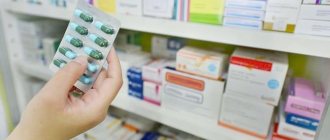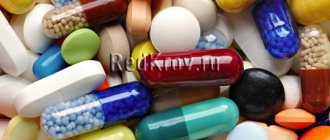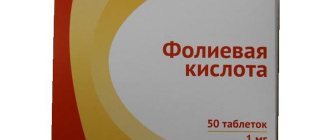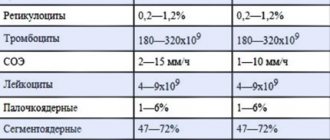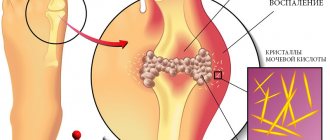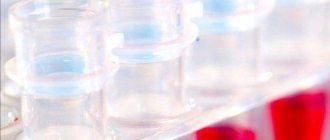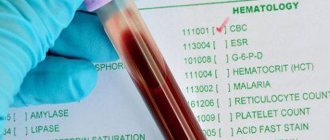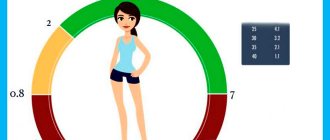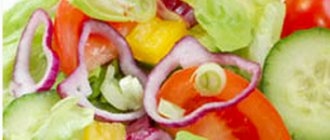Dr. Sergei Agapkin, host of the “About the Most Important” program, answered the question
Blood clotting is increased by buckwheat, bananas, herbs (dill, parsley, coriander, spinach), white cabbage, rose hips, rowan, including chokeberry. Herbs have a similar effect: yarrow, valerian, motherwort, burdock, St. John's wort, horsetail, tansy, nettle, as well as corn silk, oak bark, and viburnum bark.
With the help of nutrition, you can, on the contrary, reduce blood clotting. In this case, the diet should contain plenty of fluids and appropriate foods.
For example, cucumbers are 97% water, and half a glass of red grape juice reduces platelet activity by 75%. Cranberry tea, seaweed, melon, grapefruit, red bell pepper, tomatoes, cherries, cherries, almonds, garlic, dark chocolate, lemons, beets, cocoa, coffee, sunflower seeds will help... But if you need to change blood clotting, it’s better consult your doctor first.
As you know, poor blood clotting is fraught with the formation of blood clots, which, in turn, can lead to instant death. In recent years, mortality from heart attacks and strokes has increased significantly. Among the main reasons for poor blood clotting are: old age, pregnancy, congenital problems with blood vessels, numerous infectious diseases, anemia, disruptions in the immune system, and increased levels of anticoagulant production.
Poor blood clotting: possible causes
Specific proteins, fibrinogens, which participate in the formation of fibrin blood clots, are responsible for normal blood clotting. Various factors can affect the level of this substance. Experts call the following deviations the main reasons for this pathological condition:
- disturbances in the functioning of the liver (tumors, infectious pathologies);
- malfunction of the immune system;
- DIC syndrome (pathology of hemostasis);
- thrombophilia;
- Iron-deficiency anemia;
- thrombocytopenia;
- vitamin deficiency;
- hereditary predisposition;
- long-term use of drugs from the group of anticoagulants and angiogenesis inhibitors.
If a process such as blood clotting is disrupted, frequent nosebleeds and the causeless appearance of bruises on the body are observed. One of the symptoms is also gum bleeding. With the help of systemic and local drugs, blood clotting can be increased. Such medications should be prescribed by a doctor after diagnosis. The patient must undergo laboratory tests and undergo an ultrasound examination of the liver to exclude the development of cirrhosis.
How does the blood clotting system work?
This is a complex system that the body controls. The blood inside the vessels is liquid, but if their integrity is violated, a special mechanism is activated, and when it comes out, it seems to freeze, the clot plugs the damage and stops the bleeding.
This complex system consists of:
- The coagulation system - fibrinogen - a soluble protein - acts here; it turns into insoluble fibrin, forming a special mesh that blocks the blood flow. This happens at the right time and in the right place.
- The anticoagulation system plays a special role in this process. It thins the blood, keeping it in a liquid state, which is very important for normal blood flow. There are special coagulates that inactivate thrombin and prevent the blood from congealing, and are also capable of destroying blood clots.
- The fibrinolytic system is the antipode of the coagulation system; it dissolves fibrin filaments. This happens locally, the threads dissolve, and blood flow is restored.
What to do if you have poor blood clotting?
Patients who have a history of such a diagnosis should know how to protect themselves from the development of various types of complications. It is highly undesirable to take any medications or try traditional medicine recipes on yourself. Only after finding out the reasons for the deviation and receiving doctor’s recommendations regarding treatment should you begin therapy.
In addition to medicinal effects, attention must be paid to the nutritional system. Eating certain foods will help improve blood clotting rates. A negative psycho-emotional state and poor nutrition lead to changes in the production of fibrinogen protein.
Symptoms
If there is poor blood clotting, I diagnose the following signs:
- subcutaneous hemorrhages occur when bruises appear on the body after minor blows or for no reason at all,
- bleeding is difficult to stop
- Gums and mucous membranes bleed for no reason,
- Spontaneous nosebleeds appear,
- periods become heavy, long,
- the whites of the eyes turn red,
- Melena may appear - black stool,
- due to hemorrhages in the joints, bone tissue necrosis develops.
If blood coagulation is impaired, serious complications can develop: anemia, which results in tissue hypoxia, against the background of which weakness and decreased activity appear, the patient develops dizziness and tachycardia.
Treatment with drugs
Depending on the etiology of the pathological condition, the specialist prescribes the patient certain drugs that increase blood clotting. Such medications include:
- coagulants - directly affect the production of fibrinogen (Vikasol, Thrombin);
- synthetic drugs that improve blood clotting (aminocaproic acid);
- agents that stimulate the formation of blood clots (calcium chloride);
- preparations of animal origin (“Aprotinin”, “Pantripin”);
- drugs of synthetic origin that reduce the permeability of vascular walls (“Rutin”, “Androxon”);
- herbal preparations that reduce vascular permeability (nettle, arnica).
Before taking any medicine, you must carefully study the instructions and make sure there are no contraindications.
Herbal medicine and folk remedies
Drugs that thin concentrated blood are made not only synthetically, but also from natural raw materials. For example, warfarin and syncumar are made from coumarin found in plants. Heparin is obtained from the liver and lungs of cattle.
Therefore, you can thin the blood using folk remedies. Of course, their effect is not so quick, but it is there.
In order to reduce the thickness of the blood, plants such as willow bark, lemon balm, mint, and meadow clover are used. Leeches used in hirudotherapy have the ability to thin the blood. The saliva of leeches contains a special enzyme - hirudin, which reduces blood clotting. It is believed that flaxseed oil, regular baking soda and apple cider vinegar also have the ability to thin the blood.
To prevent blood thickening, you should pay attention to your diet. It has been noticed that some foods, if eaten regularly, have a thinning effect on our blood.
These include:
Seafood - seaweed, fish, shellfish.
Berries - cranberries, raspberries, blueberries, strawberries, currants and cherries.
Vegetables and fruits, freshly squeezed juices from them. Cucumbers, tomatoes, and beets are especially useful. Natural birch sap is very useful.
Some seasonings are ginger, celery, garlic.
To maintain better “fluidity” of blood, you need to drink a lot of fluid - up to two liters per day. You need to drink water often and little by little, so it is better absorbed by the body.
It is generally accepted that a glass of red wine has a beneficial effect on our blood, making it healthier. This is partly true. But preference should be given to really good dry wine, and you should drink very little of it.
The drug "Vikasol"
Antihemorrhagic drugs that increase blood clotting can improve the production of prothrombin in the liver and enhance the production of hemocoagulation factors. A doctor should prescribe such medications, determining the appropriate dosage and duration of therapy for a particular patient.
The hemostatic drug "Vikasol" is an indirect coagulant and is prescribed to enhance blood clotting. This is a vitamin preparation that is an analogue (synthetic, water-soluble) of vitamin K. The active ingredient in the composition is sodium menadione bisulfite (15 mg). The drug is available in the form of an injection solution and tablets.
Other medicines
Fibrinolysis inhibitors may be prescribed to increase blood clotting. Aminocaproic acid is a synthetic drug in powder form that is highly effective. It helps to inhibit the conversion of plasminogen to plasmin. The manipulation is carried out due to the influence on the activator profibrinolysin. Due to this, fibrin blood clots are preserved.
This drug is an inhibitor of kinins, individual provocateurs of the compliment system. In addition to increasing blood clotting, the drug has antishock activity. The drug is characterized by low toxicity and rapid elimination from the body. It occurs along with urine after 4 hours.
The use of the drug is very extensive. ACC is administered during a massive transfusion to increase the clotting of preserved blood. It is usually prescribed orally or intravenously. ACC can be used for therapy as an antiallergic agent. During treatment, side effects are likely to develop.
Ambien affects blood clotting. The drug is synthetic, the chemical structure is similar to para-aminobenzoic acid. Antifibrinolytic drug. Ambien inhibits fibrinolysis. The mechanism of action is similar to ACC.
A medication that increases blood clotting can be prescribed orally, intramuscularly, or intravenously. Produced in the form of tablets, 1% solution in ampoules. An increased volume of the drug on its own can provoke the development of side effects.
In some cases, antienzyme agents are prescribed. For example, Kontrikal. It is indicated for use in local hyperfibrinolysis, postoperative, post-portal bleeding, etc. Side effects are likely to develop. If the composition is administered quickly, nausea and malaise may occur. In rare cases, patients develop allergies.
Only the attending physician can prescribe the best drug. He knows the characteristics of the body and the clinical picture of the disease. It is strictly contraindicated to choose a remedy or change the dosage on your own. If the medication causes side effects, you can contact your doctor to replace the medication with a similar one.
Indications
The drug can be used as part of complex treatment for uterine bleeding, hemorrhagic disease (including in newborns), and menorrhagia.
Indications for the use of Vikasol also include the following conditions:
- frequent nosebleeds;
- vitamin K hypovitaminosis;
- hepatitis;
- bleeding during surgery;
- cirrhosis of the liver.
To prevent bleeding, the medicine is prescribed for long-term treatment with anticoagulants and for pregnant women in the last trimester.
Drug treatment of coagulation disorders
First of all, treatment of poor coagulation should be aimed at eliminating the causes of hemostatic dysfunction.
The simplest measures are to adjust the rhythm of life, reduce stressful situations and change the daily diet.
Restoring the ability of blood to clot may require discontinuation of anticoagulant drugs or changes in their dosage.
To determine a treatment strategy, you first need to undergo a full examination and blood tests. Diagnostics will help to identify the main cause that influenced the occurrence of the pathology and select the necessary drugs to correct the processes.
The traditional approach to therapy can be divided into specific and nonspecific treatment.
With a specific approach, the underlying diagnosis is treated first. For example, coagulation processes may be impaired due to the development of hepatitis or cirrhosis of the liver, or appear against the background of current autoimmune diseases.
Thus, as therapy for the primary pathology progresses, the ability to clot blood will gradually be restored. Drug therapy and medications will depend on the characteristics of the underlying disease.
During the diagnostic process, it is necessary to exclude factors of hereditary predisposition, in which coagulation will be chronic.
Diseases of this kind will require constant correction and supportive drug therapy.
Drug treatment aimed at eliminating the symptoms of poor blood clotting is a nonspecific type of therapy. Medicines will be prescribed according to test results.
READ Specific features of blood tests in children
The dissolution of blood clots is slowed down with the help of fibrinolysis inhibitors (aminocaproic or tranexamic acids, Contrical).
Intravenously administered fibrinogen helps with hypofibrinogenemia. To eliminate bleeding from small vessels, thrombin or a hemostatic sponge are used.
Vitamin K is prescribed, which is necessary for the synthesis of prothrombin. Vitamin K is prescribed, which is necessary for the synthesis of prothrombin. Sometimes treatment includes transfusion of blood plasma with high coagulation parameters.
The drug "Rutin"
Medicines that increase blood clotting from the group of flavonoids have a therapeutic effect by reducing capillary fragility. One of these drugs is Rutin. The active substance - rutoside - replenishes the lack of vitamin P, strengthens vascular walls, relieves inflammation and swelling. The drug is available in the form of tablets and powder, which contain 20 mg of rutoside.
The drug will be effective for various pathological conditions: hemorrhoids, lack of vitamin P, lymphostasis, superficial thrombophlebitis, chronic venous insufficiency, hemorrhagic diathesis. It is recommended to take Rutin three times a day, 20-50 mg at a time.
Contraindications and side effects
Anticoagulants are contraindicated for persons suffering from the following diseases:
Anticoagulants should not be taken during pregnancy, lactation, menstruation, in the early postpartum period, as well as by elderly people.
Side effects of anticoagulants include: symptoms of dyspepsia and intoxication, allergies, necrosis, rash, skin itching, kidney dysfunction, osteoporosis, alopecia.
Complications of anticoagulant therapy are hemorrhagic reactions in the form of bleeding from internal organs: mouth, nasopharynx, stomach, intestines, as well as hemorrhages in muscles and joints, and the appearance of blood in the urine. To prevent the development of hazardous health consequences, you should monitor basic blood counts and monitor the general condition of the patient.
Traditional medicine recipes
Plants will help prevent bleeding from damaged skin. Medicinal herbs that increase blood clotting are used to prepare decoctions, lotions and compresses.
Yarrow has the necessary property. The plant has a positive effect on the condition of blood vessels, stops the inflammatory process, and accelerates tissue regeneration. Dry herb (15 g) is poured with warm water (200 ml) and boiled for 15 minutes. After which the decoction should be infused, strained and taken 1 tbsp. spoon before meals three times a day.
For any bleeding, it is useful to take a decoction of nettles. To prepare it, you need to take 10 g of dry grass and pour a glass of boiling water. Steam the drink for 20 minutes, then filter and take a tablespoon 3 times a day.
Arnica will help increase blood clotting. The drug based on the flowers of the plant can be purchased in the form of drops or an infusion can be prepared at home. For a glass of boiling water (200 ml) you need to take 2 tbsp. spoons of dried flowers and steam for 40 minutes. Take 1 tbsp. spoon 2-3 times a day.
Why do you need to increase clotting?
What consequences can low blood clotting cause:
- In case of injuries to internal organs, internal bleeding may occur;
- with cuts and violations of the integrity of the skin, it is difficult to stop the bleeding;
- visiting the dentist may lead to bleeding.
Low blood clotting is dangerous during surgical interventions, so doctors refer the patient for appropriate testing before surgery. If you do not consult a doctor and do not take the necessary measures, the consequences can be very serious.
Consequences of bleeding disorders:
- bleeding in the gastrointestinal tract;
- pain, bleeding in the joint area;
- cerebral hemorrhage.
All of the above can threaten your health.
Diet
Experts recommend including foods that increase blood clotting in your diet. These include spinach, cabbage (regular and cauliflower), corn, carrots, red berries, bananas, walnuts. Eating buckwheat porridge, legumes, animal fats, white bread, and liver will be beneficial.
In order to increase blood clotting, these products should be present in the daily menu. The diet should be varied. The products listed should only complement it. Dietary nutrition and traditional medicine recipes for problems with blood clotting will help people who have contraindications to drug therapy. This method of maintenance treatment is completely safe for children.
Nutrition rules to increase the indicator
Adjusting your diet can significantly increase blood clotting.
Tips for changing your diet:
- give up sugar;
- drink 1.5-2 liters of water per day;
- reduce the amount of foods containing animal fats;
- remove vitamin complexes and nutritional supplements from use;
- eat more foods containing vegetable protein;
- do not drink alcoholic beverages;
- don't drink coffee;
- remove semi-finished products and sausages from the menu;
- forget about mayonnaise;
- you can drink black tea, but not strong;
- introduce into the diet dishes made from offal such as liver, brains, heart;
- increase the amount of food containing Omega-3.
Following these simple rules will increase the rate of blood clotting.
Increased blood viscosity symptoms, factors and consequences
There are many factors that cause blood thickening (hemoconcentration)
It is important to understand that the blood needs to be “diluted”. When tissue fluid collected in the form of lymph does not enter the vessels, the blood slowly begins to thicken. This is facilitated by fats circulating in the blood, coming from the fatty foods that we absorb, and the waste that remains after parasites.
But water alone cannot solve the problem of blood thickening.
If there is a tendency to hemoconcentration, you should consult a doctor to confirm the diagnosis and prescribe treatment. Almost all people over the age of 50 should take medications that thin the thick blood. Why? Yes, because today it is difficult to meet an “aged” person who leads a healthy lifestyle and adheres to the basic principles of proper nutrition. A sedentary lifestyle and an abundance of “harmful” foods included in our daily diet, as well as bad habits (smoking, alcohol abuse), all this leads to the fact that over the years the blood becomes more and more concentrated
This is why it is so important to take medications designed to thin clotted blood.
Symptoms that may indicate increased blood viscosity:
Complaints of drowsiness, fatigue, constant headaches.
A person suffering from hypercoagulability will be prone to frequent thrombosis. He will be irritable and absent-minded.
His hands and feet will be cold, his mouth will be constantly dry.
Why does the blood thicken? The reasons are:
Increase in the number of red blood cells;
Increasing the ratio of the amount of formed elements in blood and plasma - hematocrit;
Increase in hemoglobin level.
Factors influencing thickening:
Fluid imbalance in the human body;
Dehydration. It occurs in many infectious and some somatic diseases. Long-term diarrhea and vomiting, diabetes mellitus, physical activity - all this can quickly lead to dehydration of the body;
Diseases of the kidneys, liver, spleen;
Taking certain medications, such as diuretics (furosemide, veroshpiron), laxatives.
What are the consequences of hypercoagulability? Blood thickening leads to a number of problems.
Firstly, the blood supply to organs is disrupted. And it delivers oxygen and all the necessary nutrients to our internal organs. Due to a lack of oxygen, a person becomes drowsy and fatigued.
Secondly, the functioning of the cardiovascular system is disrupted and blood pressure rises. Thickening blood cannot circulate well through the vessels; it stagnates more and more and puts pressure on the walls of arteries and veins. The heart has to work twice as hard, which leads to its premature wear. If timely measures are not taken, the blood will eventually simply rupture the weakest wall of any vessel. This is roughly how very dangerous conditions arise – heart attack and stroke.
Due to the increased load on the venous system, varicose veins form, thrombosis and thrombophlebitis appear.
Platelet aggregation stimulators
Aggregation represents the last stage of blood clotting, in which platelets stick together, preventing the release of blood. When a vessel is damaged, a component called adenosine diphosphate is produced. This substance promotes the clumping of platelets in the injured area.
The following drugs are isolated from platelet aggregation stimulators:
- Serotonin. Used as injections into a vein or muscle. The use of the product is recommended for people with thrombocytopenia and thrombocytopathy. The medicine increases the concentration of platelets in the blood, enhances clumping, and prevents blood loss. Children can use the medication in extreme cases, as it leads to spasm of the smooth muscles of the bronchi and intestinal vessels.
- Adroxon. The drug adrenochrome, a metabolite of adrenaline, increases coagulation in small capillary bleedings. The medication penetrates deep into the walls of blood vessels. The drug is prescribed for local therapy and for injection into the muscle or under the skin.
- Calcium chloride. Takes part in the adhesion of platelets, provokes the active formation of thrombin and fibrin. Used in case of bleeding, which is accompanied by a decrease in calcium concentration in the blood.
To increase coagulability, calcium chloride and calcium gluconate are used. Children should not be given calcium chloride intravenously, as this can lead to cardiac arrest and a drop in blood pressure.


